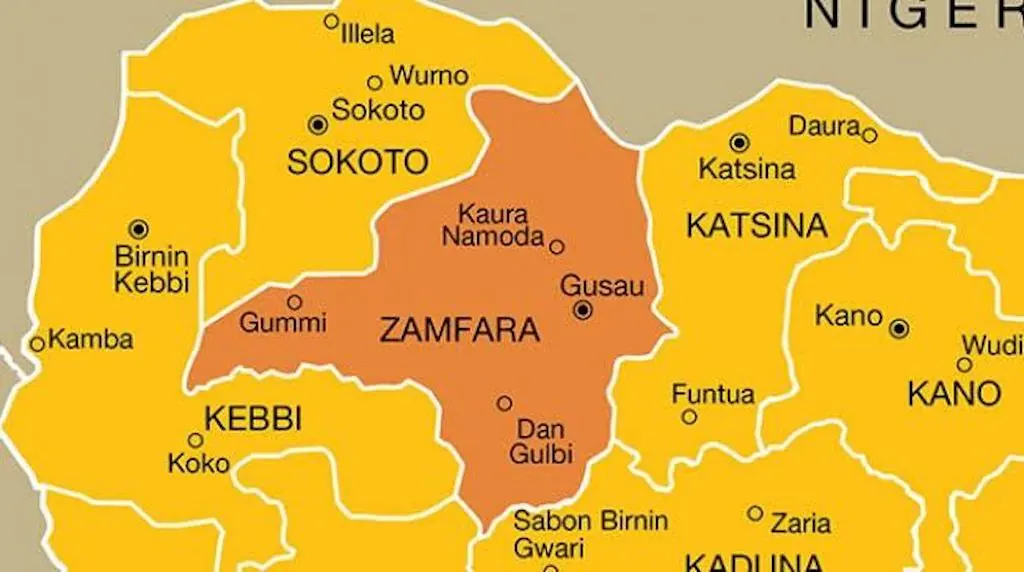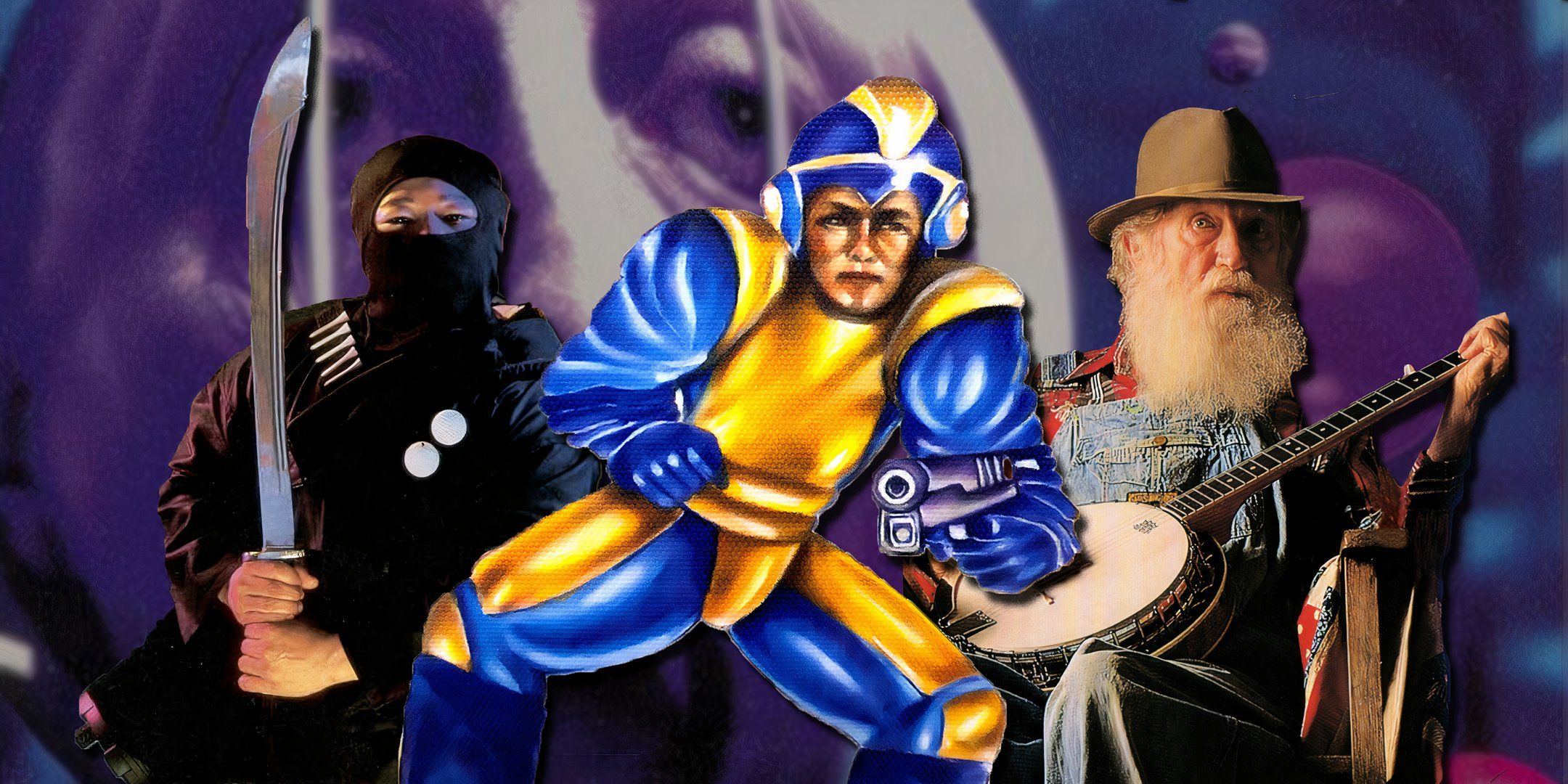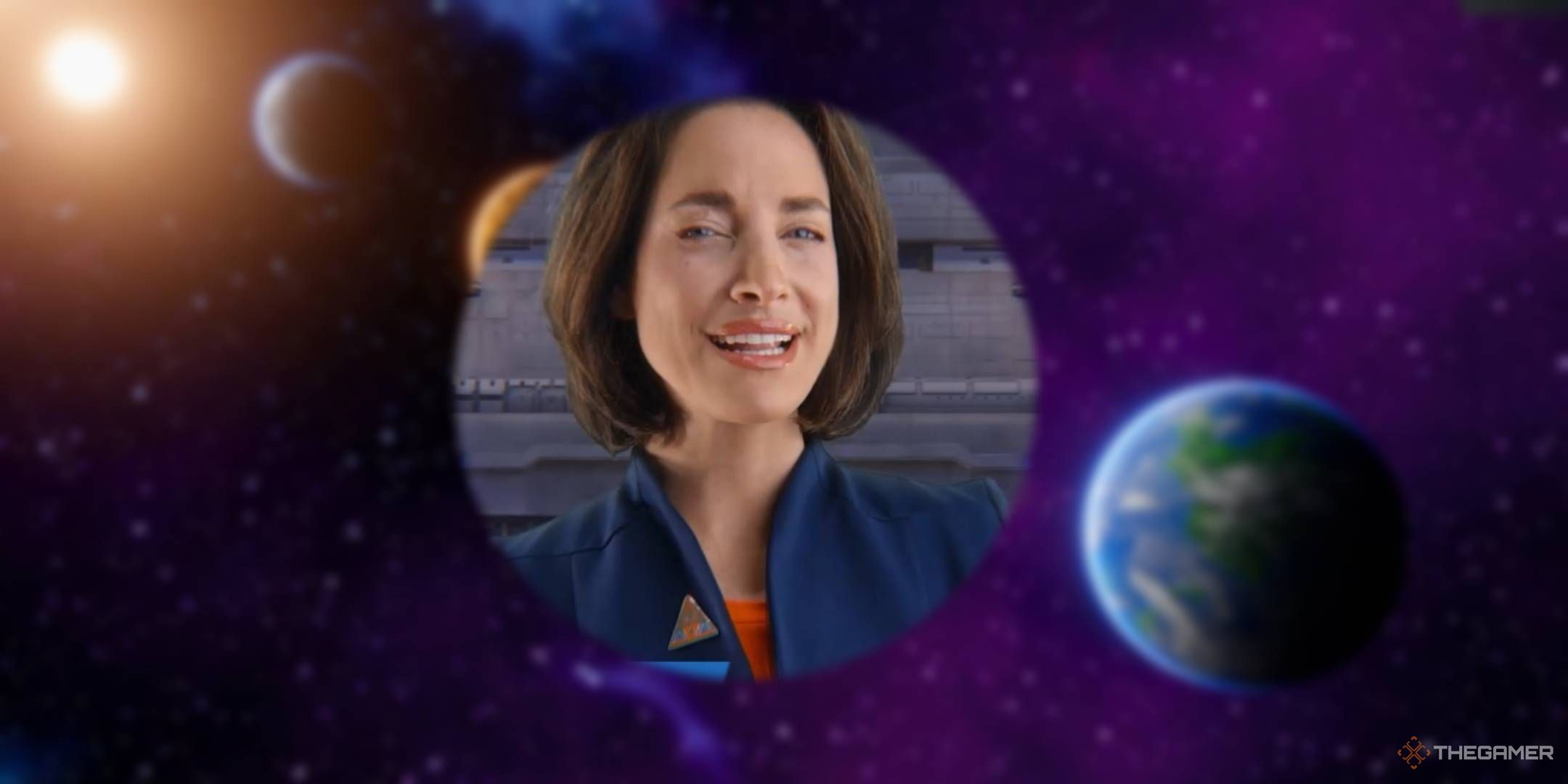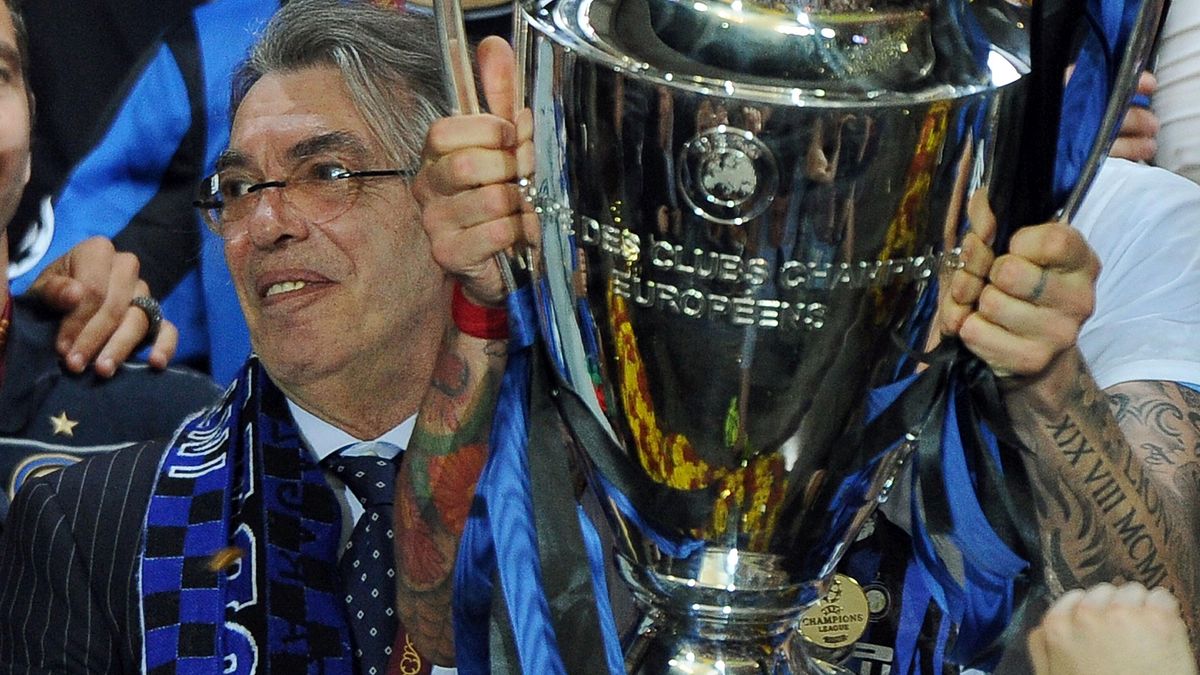Sharp and tall, the blades of grass sway gently in an unseen breeze. Amongst the shifting greens is a small boy. His serenity is palpable, bolstered by the tranquility of the natural world around him, and otherwise unswayed by external factors.
His sojourn is interrupted, however, when his mother swoops the boy into her loving and protective arms. In short order, the calming meadow is revealed to be an overgrown yard resting beside a decaying homestead, itself housed within a swiftly disintegrating Detroit community. Abandoned buildings reflect the ghostly aura of a once livable and thriving locale while unchecked fires ravage and opportunistic evils mature. People who are able are getting out, leaving those who remain cemented to the deteriorating country abandoned by the world outside.
Written and directed by , finds its footing in that forsaken place, teetering on the edge of societal collapse and the awe-inspiring power of Mother Earth as what had once been claimed, developed, and tamed, is reabsorbed into the grand indifference of nature’s domain. Presented with a hallucinatory eye and a fascination with the otherworldly terrors inherent in those people and places that refuse to acknowledge structured civility, Lost River is a strange, disturbing, and unexpectedly soulful expedition into the hearts and minds of those innocents attempting to navigate the tumultuous currents of a place that not only devalues the lost, but that seems to thrive in their collective misery.
is Billy, a single mother desperately attempting to retain ownership of her family’s eroding residence. In her care is Franky, the little boy from the film’s opening moments, and her teenage son Bones, played by. Bones struggles under the self-imposed weight that his mother’s financial struggles elicit, resulting in an understated combativeness and detached frigidity between them. Still, amidst the sniping comments and frustrated gaps in their communications, there is an overt sense of love and belonging stitching their interactions together, ensuring that the painful, dangerous, and damning decisions the characters make remain tied to an altruistic desire to retain and protect their home and family.
Lost River is presented brusquely, embracing a raw and unfiltered perspective that occasionally jars with the underground glamour and exploitative bureaucracies that exist to keep the disadvantaged destitute. The look and feel of the decimated and, in some cases, naturally reclaimed locales has a post-wartime feel, as though Lost River shares a kinship with the Italian neorealist movement of the 1940s and 1950s. Fiction and reality commingle in blunt, observational photography, allowing the picture to feel haunted by truisms that are perhaps more frightening than even the monstrous letches who plague the core characters and their sinking community.
Both Billy and Bones embark on their own journeys – parallel quests of danger and intrigue that share the common goal of keeping their family’s house intact as developers threaten to tear it, and what remains of their fragile stability, down. Each tale takes root in the base instincts that drive the brutish scavengers seeking to feast on those unable to escape the rot, highlighting the intravenous evils that are injected into a community where hope and happiness are relegated to daydreams and fairytales.
Bones spends his days stripping copper from abandoned buildings so that he can flip the metal for a meager profit. Left with no resources, no options, and no method to grow beyond his stunted, waning adolescence, Bones is reduced to retrofitting the apocalyptic ruins of his surroundings to meet the needs of his family. As if cannibalizing the ruins of his childhood was not unpleasant enough, his work is quickly disrupted by psychopathic Bully. Living up to his name, Bully is a murderous sociopath who has declared purchase over their shared wasteland and is known for the ghastly methods he employs against those who opt not to respect his tyrannical rule.

Bully’s frenzied madness is exhibited when he shears the lips off his counterpart’s face – a character aptly named Face. This fate, or likely something far worse, awaits Bones as well after he defies Bully’s wishes and steals back some stripped copper from Bully’s hideout. Worse yet, the target on Bone’s back bleeds onto his neighbor Rat, played with quiet contemplation and fierce loyalty by . Rat lives across the street from Bones with her grandmother Belladonna. plays the silent Belladonna, a woman possessed by the past, thriving in the temple of her mind as she spends her days watching old video cassettes of a life that seems more as a dream than a memory.
Rat, named as much due to her pet rat, posits that their little town is cursed, leaning further into the ever-darkening storybook nature of the piece. Visually and narratively, this idea is brought to life by Bones’ discovery of algae-encrusted street lamps creeping out of the waters of the nearby reservoir, leading down a watery road to a drowned town. Rat explains that when the place was submerged, an evil spell was cast. Now the people of their community are all underwater in one way or another, that is, until a hero can retrieve something that has been lost to the soaking depths of the forgotten place beneath the waves.
Billy too is struggling to keep her head above the drink, seeking support from her bank’s new manager as she attempts to quell her unruly debt. plays Dave, a no-nonsense businessman who explains, in no uncertain terms, that Billy is in serious financial trouble. Uninterested in her story of woe, he immediately begins to groom his prey, feeding her subtle threats about approaching wolves and cryptically slipping her a business card with an accompanying job offer based on a combination of her desperation and his evident lust.
Dave is strategically obtuse until the time comes for weaponized directness. His job offer leads Billy to the proverbial gateway to Hell: a monstrous concrete demon, its teeth exposed in its wide open maw, its brow furrowed in furious hunger, forming a doorway into a club designed to mine the worst, most carnal desires of its predatory patrons. Inside Billy meets Cat, played by the devilishly wry , whose burlesque performance begins in a coffin and culminates in a brutal stabbing by a black masked assailant, splattering blood onto the hungry jeerers in the crowd.

Backstage Cat inquires about Billy’s interest in blood and guts while seeking to understand and measure the qualities of Billy’s scream. Bathed in purple, blue, and red light, the club is a place of nightmares come to life, a den of controlled horrors plucked from the most surreal Italian exploitation flicks and gratuitous slasher movies this side of the 1960s. Billy’s discomfort turns to resolve as she submits to the place’s lucrative promise and crafts an act wherein she methodically removes her face with surgical precision. Hanging the skin and admiring it as she looks on through exposed eyes and muscle tissue seeping with wet, bright red blood, the performance speaks as much to the identity crisis surging within Billy as it does the grotesqueries the club’s attendees so ravenously covet.
Both Billy and Bones must navigate the obsessive focus of their respective devils and, as the film progresses, their trails take progressively more disturbing turns. Bully punishes Rat for her affiliation with Bones. Dave explains to Billy how “unsexy” motherhood is to him and how it is he feels when he meets what he labels a “bad bitch.” All the while, Bones moves closer to his inevitable expedition beneath the dark waters and its overgrown, watery jungle of literal and figurative prehistory and Billy finds herself drawing ever nearer to the disturbingly dark goings on of the club’s lower levels.
How far will Billy and Bones go to recapture what was perhaps never there to begin with? Is solace even possible when so much of oneself has been sacrificed to its arguably fruitless cause?
The film is less interested in answering these questions than it is in witnessing its core characters attempts to, if only internally. The events unfold with a magical sense of hyper-realism, allowing the cold, plastic body mold beneath the club, ready to house the poor soul willing to subjugate themselves to the whims of the men who congregate there, and the long abandoned black waters housing both suburbia and multi-story dinosaur statues to synthesize in the film’s final act. Face snarls his monstrous, lipless glare, Bully sets a house aflame, Dave dances unfettered, and both Bones and Billy aim for the head of their respective beasts as the cry for freedom crescendos to a roar. This is not about saving their house any longer but rather the liberation of their souls, and by nature, their humanity.

The film begins and ends with fire. What starts as a destructive force becomes a cleansing one, for better or for worse, while the film’s events begin to feel like the kind of modern-day Grimm Brothers yarn that has just as much likelihood of having happened as it does being fiction, spun for those that it might uniquely inspire. Coupled with Johnny Jewel’s pulsating, Goblin-esque score and Gosling’s engrossing execution of a multitude of genre-bending locales, styles, occurrences, and characterizations, Lost River concludes as a haunting lullaby infused with horror and hope.
Like Franky, playfully exploring the sheathes of green while oblivious to the flourishing decomposition around him, Lost River seeks respite from its beasts through the power of nature and the better part of humanity’s capacity for love. While the narrative refutes a traditional, packaged, and altogether neat result, the denouement embraces both the fantastical and grounded ingredients that concoct folk tales of a similar nature. The villains, the heroes, and those caught in the crosshairs flicker in the retrospective memory of Lost River like so many a ruinous or cathartic flame and all merge to form the spectral sensibility of risk, failure, punishment, and reward that follows in the wake of Billy and Bones’ crusade for agency – for themselves and for their family.
Freedom and family are not mutually exclusive, after all, despite how it might sometimes seem. Still, when the mold settles in and the compass is soured, even the clearest path can appear impassable or not appear at all. That is when the shadows sharpen like shears and the doorways sprout fangs. When the boundaries of the world flood over and when the helpless must find emancipation within.
Misery is contagious, of course, but so is hope. Which one will spread? Well, that depends on what is lost, what is gained, and the decisions of all of those who find themselves on the precipice of love, hate, and everything in between.
To escape being lost, one has only to be found, even if that sometimes requires the lost to do the finding.














